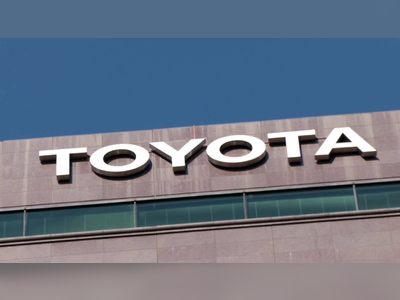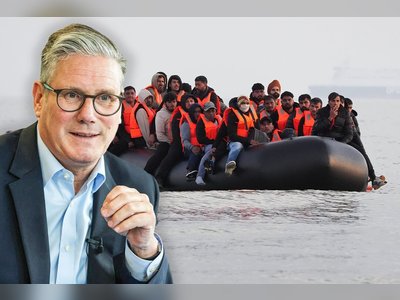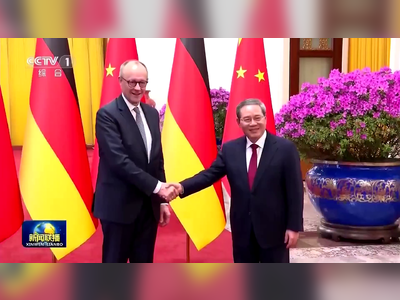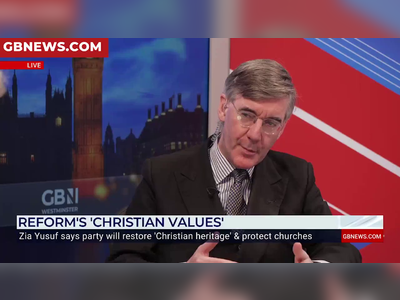
Germany's Changing Dynamics with the U.S. in a Second Trump Term
How a revived Trump administration could transform the transatlantic alliance and test Germany's position in international matters
In November 2024, Deutsche Welle, Germany’s state-owned news service, released an article titled ‘Trump’s election victory is a nightmare for Germany,’ highlighting the increasing anxiety within Germany following Donald Trump’s reelection as President of the United States.
Within less than 24 hours, Chancellor Olaf Scholz declared the dissolution of his three-party coalition, attributing the collapse to disagreements over the nation’s economy and the repercussions of the U.S. election results.
A month later, after losing a confidence vote, Scholz's administration was removed, setting the stage for federal elections slated for February 23, 2025.
Germany and the United States have historically enjoyed a robust alliance, nurtured through decades of economic, military, and diplomatic collaboration.
However, Trump's return to the presidency has sparked fears in Germany that this relationship might undergo significant changes, as Trump's foreign policy—centered on an ‘America First’ agenda—conflicts with Europe’s traditional emphasis on multilateralism.
In a memoir released in 2024, former Chancellor Angela Merkel described Trump’s first term as a ‘challenge to the world,’ especially concerning multilateralism, which is a cornerstone of the European Union’s ethos.
For Germany, the risk of Trump imposing tariffs on crucial exports or retracting support for Ukraine in its confrontation with Russia is a looming concern.
Germany has been a key supporter of Ukraine, and a potential withdrawal of U.S. backing by Trump could increase both financial and diplomatic pressure on Berlin.
As one of the world’s leading economies, Germany’s close ties with the U.S. have been instrumental in shaping European security and the global economic framework.
The German-American alliance traces back to the post-World War II period when the U.S. assisted in rebuilding West Germany as a deterrent against Soviet influence during the Cold War.
Despite this historically strong relationship, Merkel’s 2017 meeting with Trump highlighted the stark contrasts between their leadership styles.
Merkel, who grew up in East Germany during the Cold War, navigated a world of nuanced diplomacy, whereas Trump’s transactional international approach left Merkel and other European leaders struggling to adjust.
Despite these tensions, Germany's role on the international stage shifted dramatically in 2022 when Russia’s invasion of Ukraine led to a reorientation of German foreign policy.
Scholz’s landmark speech in February 2022 marked a ‘Zeitenwende’ (turning point) for Germany, indicating a commitment to a more proactive military posture and an increased defense budget.
Germany reached NATO’s defense spending target of 2% of GDP in 2024, a goal that had long eluded it.
This shift was partly propelled by American pressure, with Trump’s earlier critiques of Germany’s defense spending pushing the country to meet NATO’s targets.
During Trump’s first term, Germany faced significant pressure to contribute more to NATO, with the then-president repeatedly threatening to reduce U.S. support unless European allies met their defense spending benchmarks.
As Germany prepares for its next federal elections, critical decisions will have to be made regarding its relationship with the United States under Trump’s second term.
With the world’s two largest economies and military powers potentially in conflict, the future of the transatlantic alliance may depend on Germany’s ability to remind Trump of the longstanding partnership between the two nations and the benefits of continued collaboration.
In the face of these challenges, Germany will need to balance its dedication to European unity and multilateralism with the reality of an American president whose policies often prioritize national interests over global alliances.
How Germany tackles these developments will determine its future role in international affairs, and its capacity to maintain a strong, stable relationship with the U.S. will be vital for preserving its influence on the global stage.
Within less than 24 hours, Chancellor Olaf Scholz declared the dissolution of his three-party coalition, attributing the collapse to disagreements over the nation’s economy and the repercussions of the U.S. election results.
A month later, after losing a confidence vote, Scholz's administration was removed, setting the stage for federal elections slated for February 23, 2025.
Germany and the United States have historically enjoyed a robust alliance, nurtured through decades of economic, military, and diplomatic collaboration.
However, Trump's return to the presidency has sparked fears in Germany that this relationship might undergo significant changes, as Trump's foreign policy—centered on an ‘America First’ agenda—conflicts with Europe’s traditional emphasis on multilateralism.
In a memoir released in 2024, former Chancellor Angela Merkel described Trump’s first term as a ‘challenge to the world,’ especially concerning multilateralism, which is a cornerstone of the European Union’s ethos.
For Germany, the risk of Trump imposing tariffs on crucial exports or retracting support for Ukraine in its confrontation with Russia is a looming concern.
Germany has been a key supporter of Ukraine, and a potential withdrawal of U.S. backing by Trump could increase both financial and diplomatic pressure on Berlin.
As one of the world’s leading economies, Germany’s close ties with the U.S. have been instrumental in shaping European security and the global economic framework.
The German-American alliance traces back to the post-World War II period when the U.S. assisted in rebuilding West Germany as a deterrent against Soviet influence during the Cold War.
Despite this historically strong relationship, Merkel’s 2017 meeting with Trump highlighted the stark contrasts between their leadership styles.
Merkel, who grew up in East Germany during the Cold War, navigated a world of nuanced diplomacy, whereas Trump’s transactional international approach left Merkel and other European leaders struggling to adjust.
Despite these tensions, Germany's role on the international stage shifted dramatically in 2022 when Russia’s invasion of Ukraine led to a reorientation of German foreign policy.
Scholz’s landmark speech in February 2022 marked a ‘Zeitenwende’ (turning point) for Germany, indicating a commitment to a more proactive military posture and an increased defense budget.
Germany reached NATO’s defense spending target of 2% of GDP in 2024, a goal that had long eluded it.
This shift was partly propelled by American pressure, with Trump’s earlier critiques of Germany’s defense spending pushing the country to meet NATO’s targets.
During Trump’s first term, Germany faced significant pressure to contribute more to NATO, with the then-president repeatedly threatening to reduce U.S. support unless European allies met their defense spending benchmarks.
As Germany prepares for its next federal elections, critical decisions will have to be made regarding its relationship with the United States under Trump’s second term.
With the world’s two largest economies and military powers potentially in conflict, the future of the transatlantic alliance may depend on Germany’s ability to remind Trump of the longstanding partnership between the two nations and the benefits of continued collaboration.
In the face of these challenges, Germany will need to balance its dedication to European unity and multilateralism with the reality of an American president whose policies often prioritize national interests over global alliances.
How Germany tackles these developments will determine its future role in international affairs, and its capacity to maintain a strong, stable relationship with the U.S. will be vital for preserving its influence on the global stage.
Translation:
Translated by AI
AI Disclaimer: An advanced artificial intelligence (AI) system generated the content of this page on its own. This innovative technology conducts extensive research from a variety of reliable sources, performs rigorous fact-checking and verification, cleans up and balances biased or manipulated content, and presents a minimal factual summary that is just enough yet essential for you to function as an informed and educated citizen. Please keep in mind, however, that this system is an evolving technology, and as a result, the article may contain accidental inaccuracies or errors. We urge you to help us improve our site by reporting any inaccuracies you find using the "Contact Us" link at the bottom of this page. Your helpful feedback helps us improve our system and deliver more precise content. When you find an article of interest here, please look for the full and extensive coverage of this topic in traditional news sources, as they are written by professional journalists that we try to support, not replace. We appreciate your understanding and assistance.











